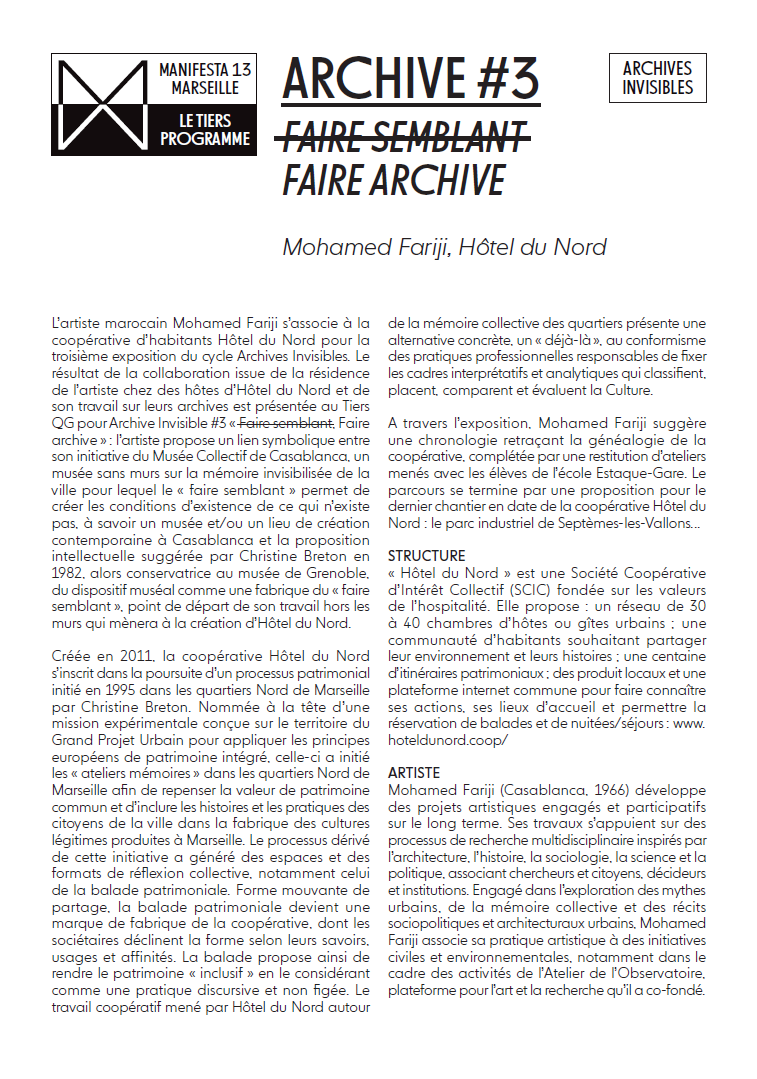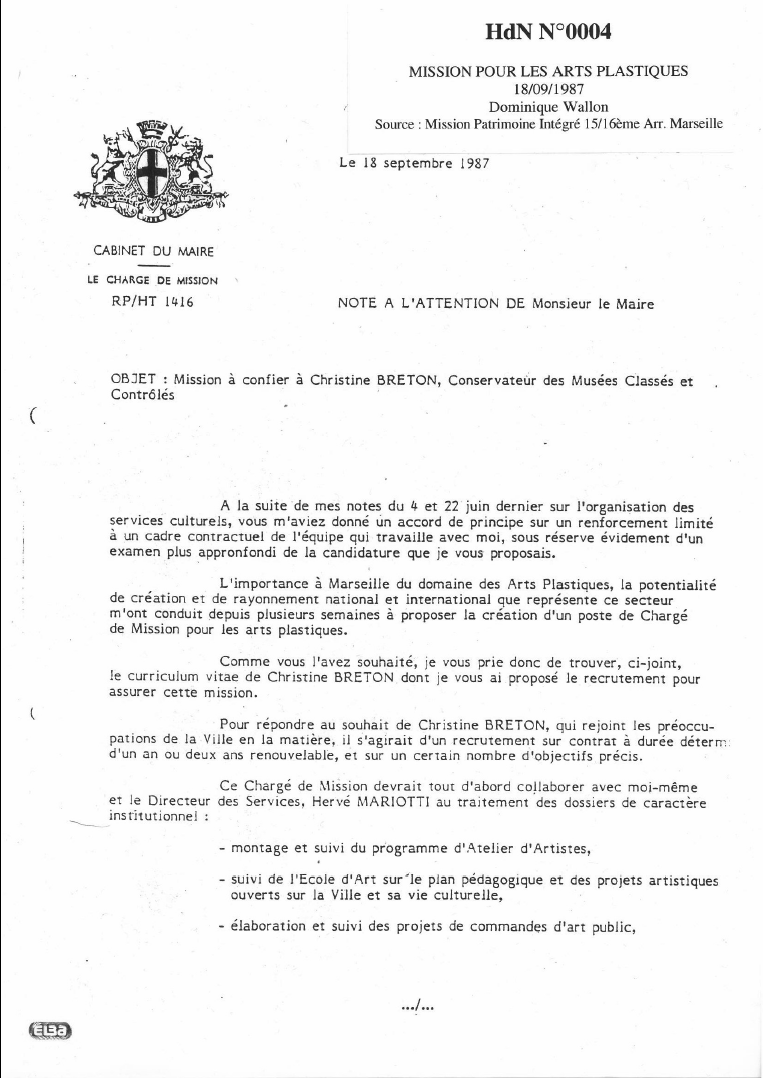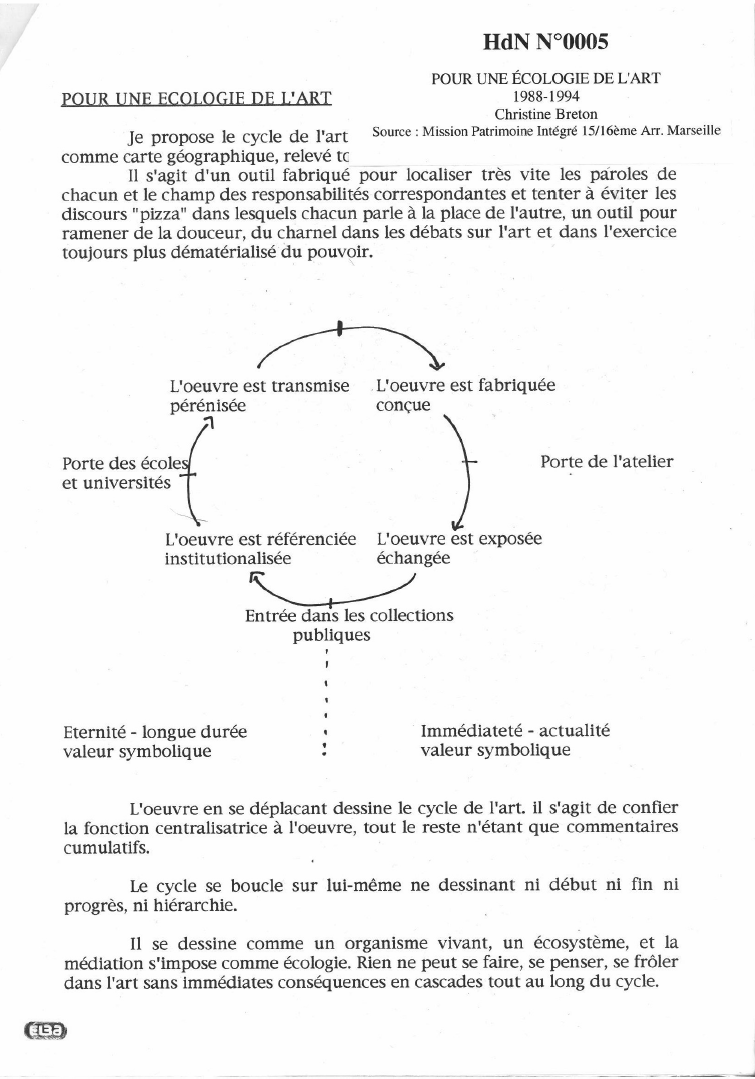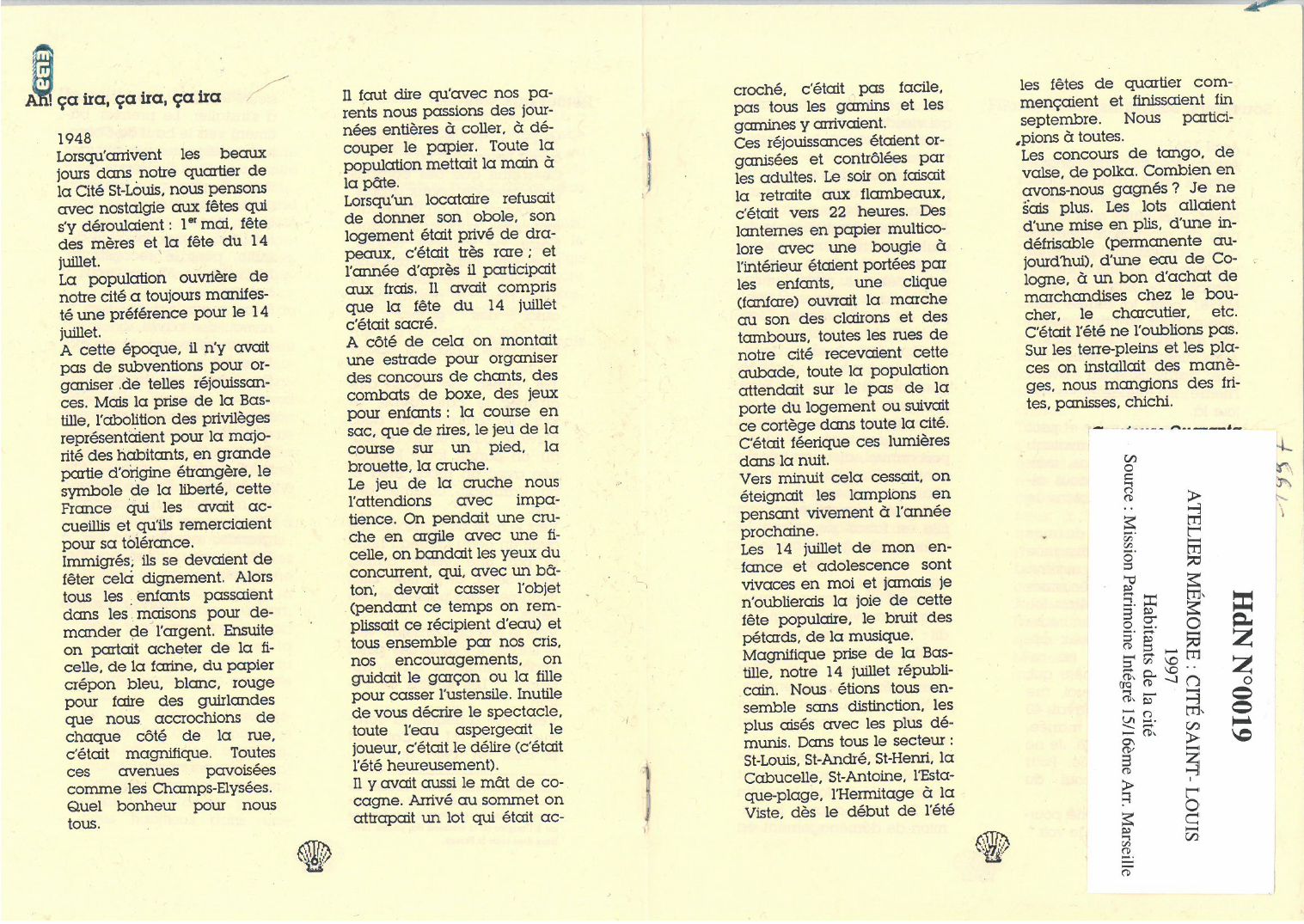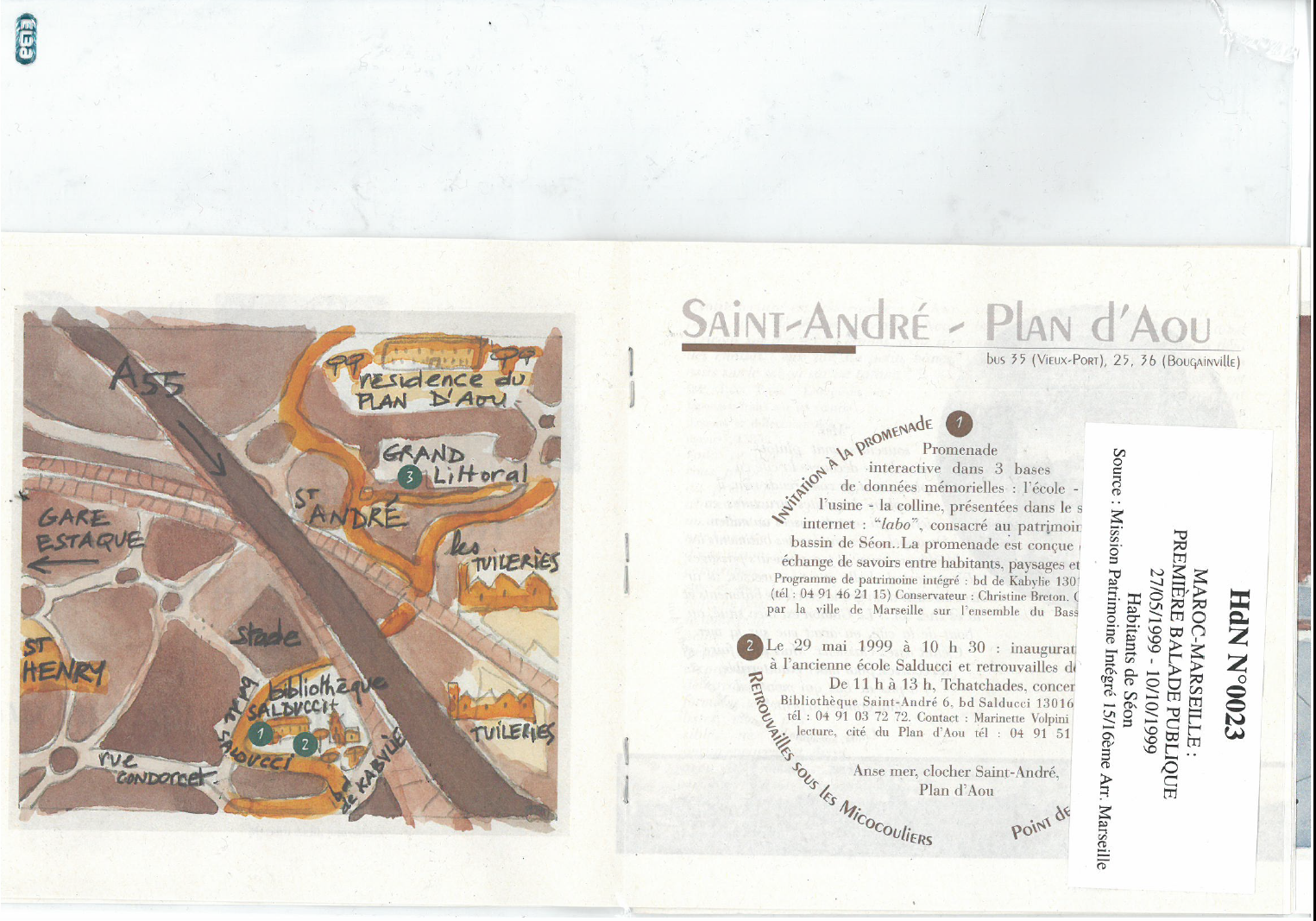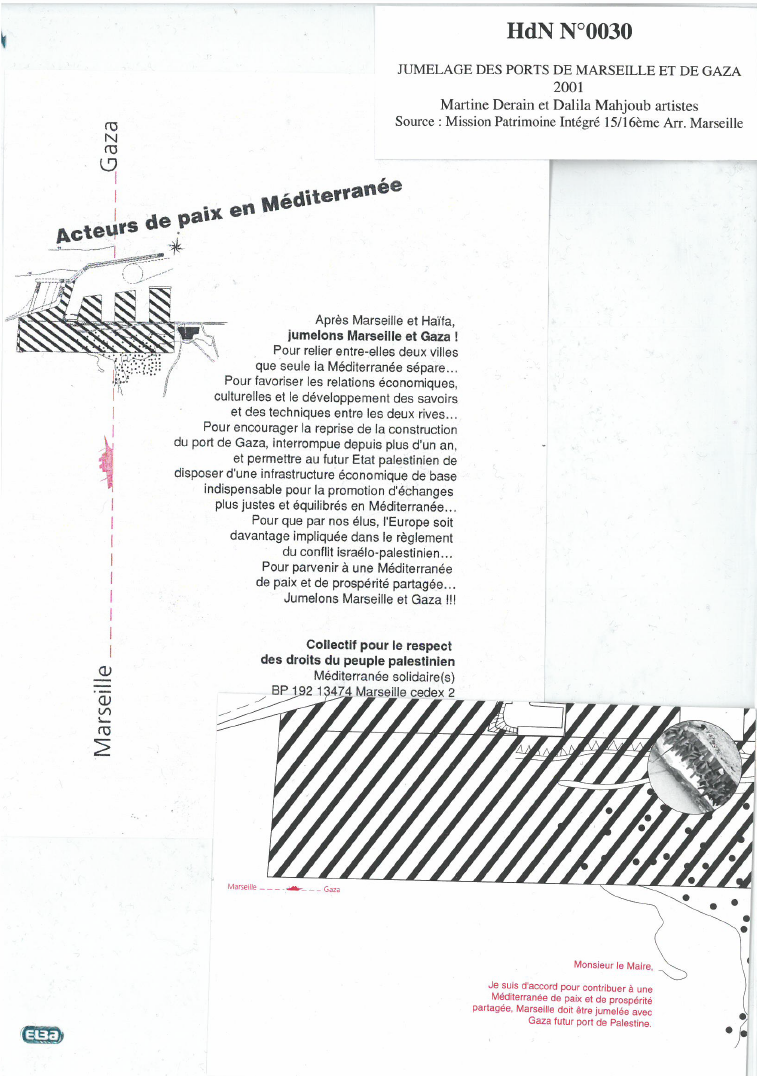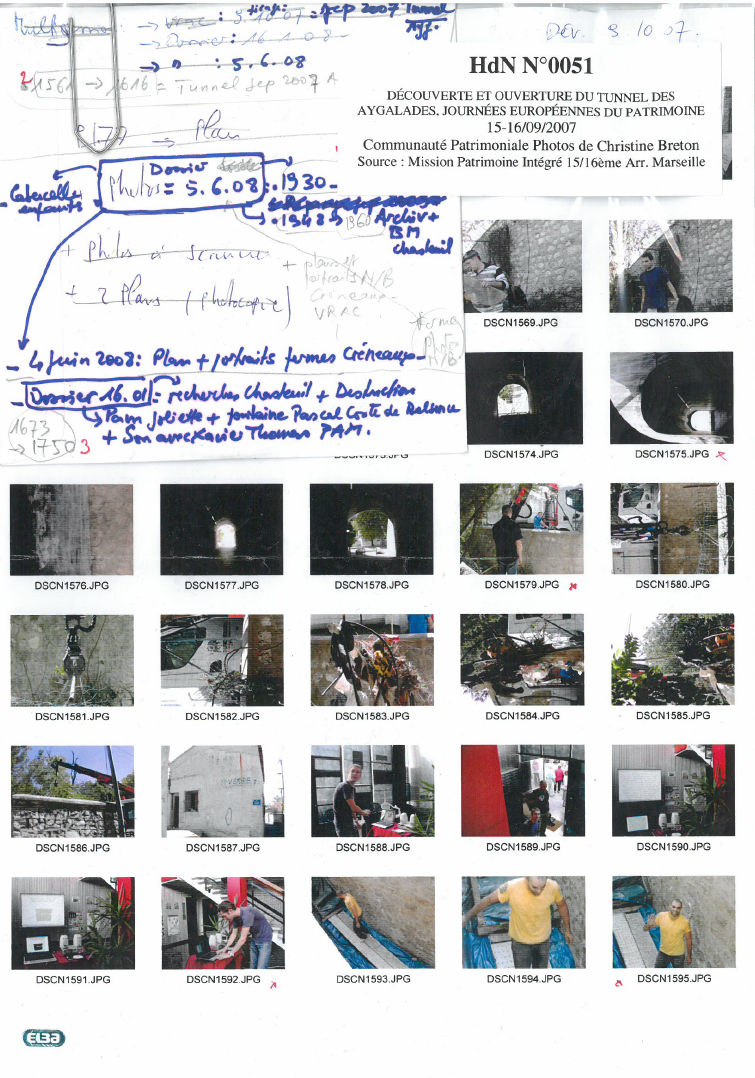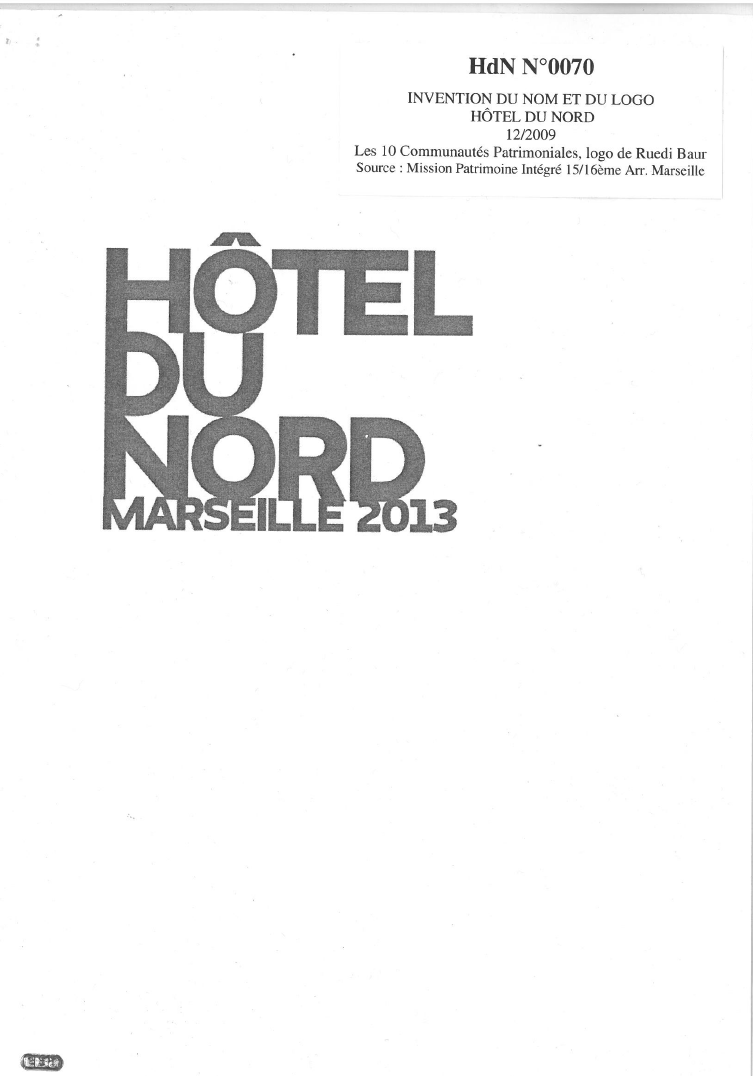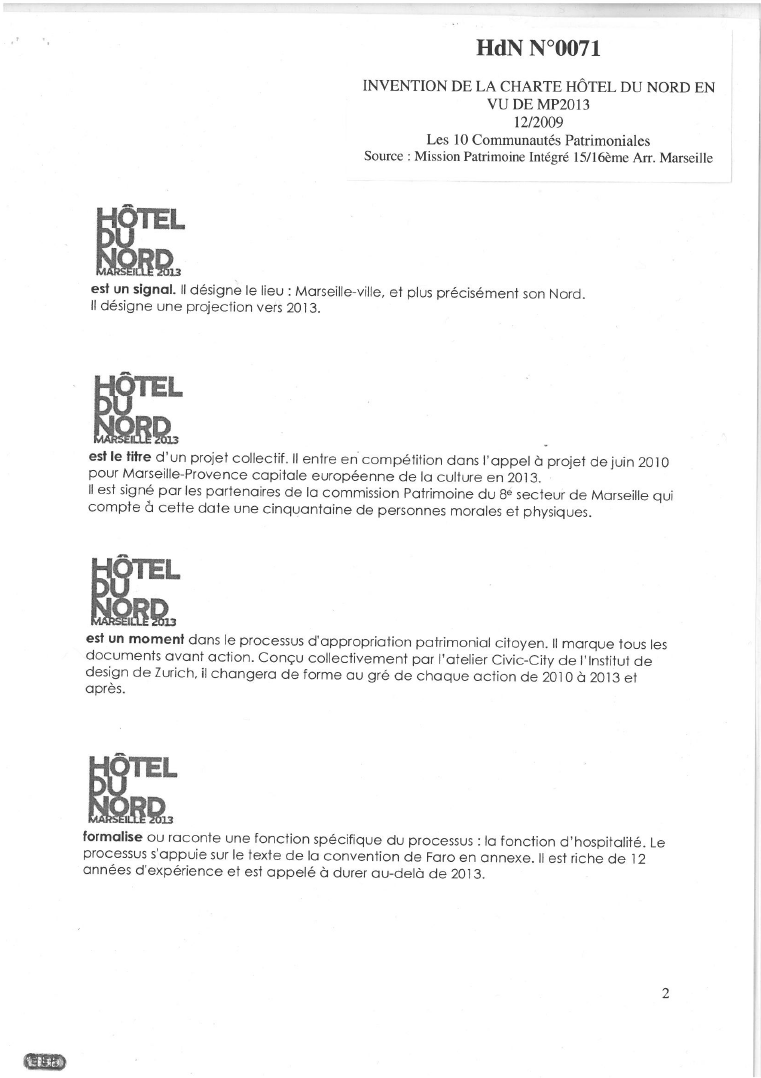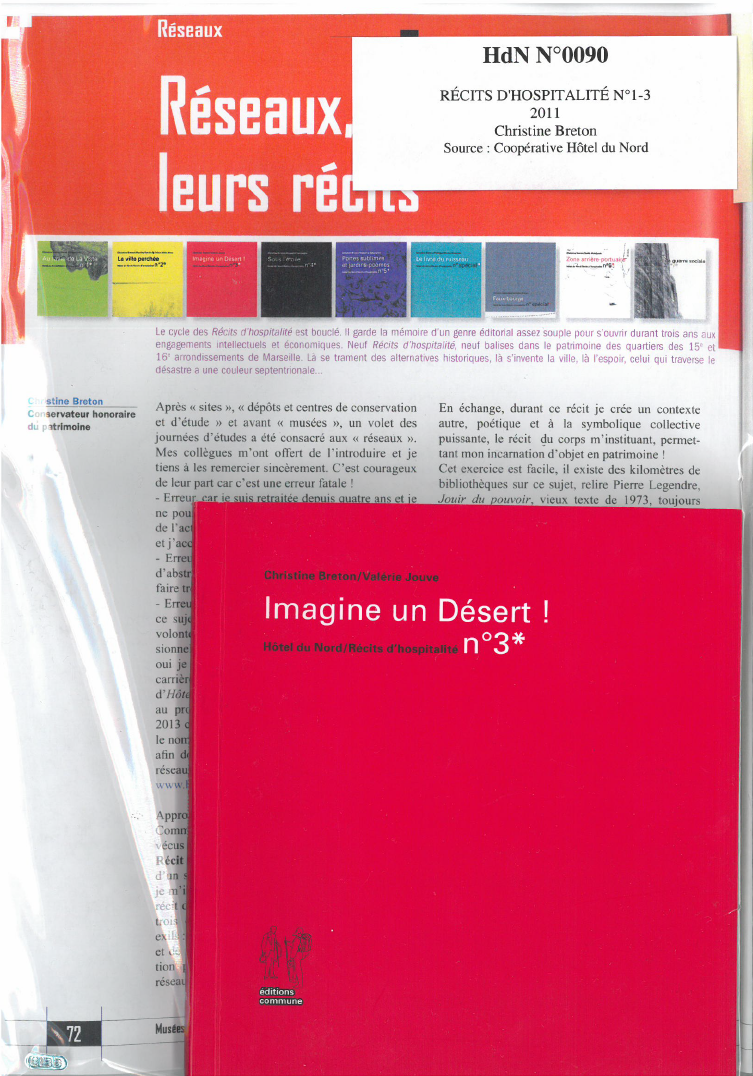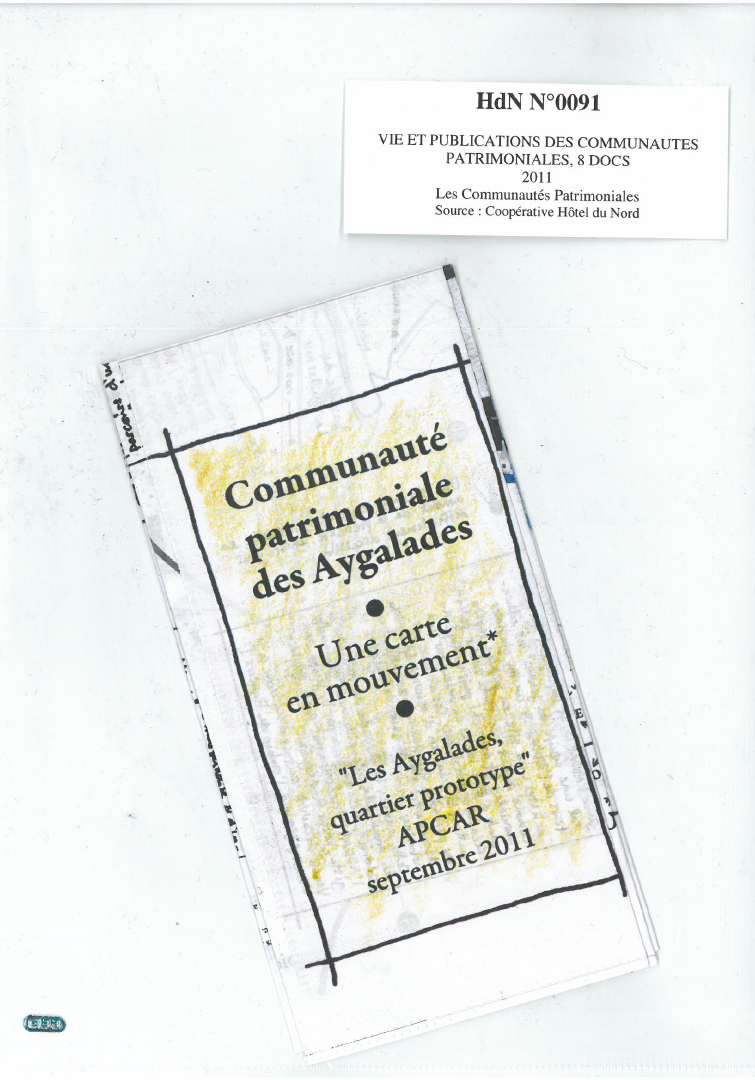Archives : Hôtel du Nord
Artistes : Mohamed Fariji (Casablanca)
Faire Semblant / Faire Archive
Moroccan artist Mohamed Fariji joins forces with the Hôtel du Nord residents’ cooperative for the third exhibition of the Invisible Archives cycle. Invested in exploring urban myths and collective memory, Mohamed Fariji develops long-term, engaged and participatory artistic projects. The result of the collaboration resulting from the artist’s residency with hosts of Hôtel du Nord and his work on their archives is presented in Tiers QG for Invisible Archive # 3 “Faire Semblant. Faire Archive” (“Pretending Archiving”): the artist offers a symbolic link between his initiative of the Collective Museum of Casablanca, a museum without walls on the invisibilised memory of the city for which “pretending” allows to create the conditions of existence of what does not exist, namely a museum in Casablanca and the intellectual proposal suggested by Christine Breton in 1982, then curator at the Musée de Grenoble, of the museum system as a “pretending” factory, the starting point for her work outside the museum’s walls which will lead to the creation of Hôtel du Nord.
Founded in 2011, the Hôtel du Nord cooperative is part of a heritage process initiated in 1995 in the northern districts of Marseille by Christine Breton. Appointed at the head of an experimental mission designed in the territory of the Grand Urban Project to apply European principles of integrated heritage, she initiated “memory workshops” in the northern districts of Marseille in order to rethink the value of common heritage and to include the stories and practices of the citizens of the city in the making of the legitimate cultures produced in Marseille. The process derived from this initiative has generated spaces and formats for collective reflection, in particular that of the heritage walk. A moving form of sharing, the heritage walk becomes a trademark of the cooperative, whose members decline the form according to their knowledge, uses and affinities. The walk thus proposes to make the heritage “inclusive” by considering it as a discursive and not fixed practice. The cooperative work carried out by Hôtel du Nord around the collective memory of the districts presents a concrete alternative, an “already there”, to the conformism of the professional practices responsible for fixing the interpretative and analytical frameworks which classify, place, compare and evaluate Culture.
Derived from these reflections put into practice, the Hôtel du Nord cooperative was formed around a network of thirty rooms and urban accommodations. Its mission is to enhance hospitality and the natural and cultural heritage of Marseille, from the perspective of the northern districts of the city. The collective process deployed, and the socio-economic model devised by the members of Hôtel du Nord today serve as an example for the Council of Europe to illustrate their definition of the Faro Convention (Convention on the Value of Cultural Heritage for Society).
Through the exhibition Invisible Archive # 3 “Faire Semblant. Faire Archive”, Mohamed Fariji proposes to explore the dense history of the initiatives of Hôtel du Nord which echo with his project of the Collective Museum of Casablanca, proposing a shared writing process of the city by its inhabitants. He suggests a chronology retracing the genealogy of the cooperative, supplemented by showcases from workshops conducted with students from the Estaque-Gare school. The route ends with a proposal for the latest site of the Hôtel du Nord cooperative: the industrial park at Septèmes-les-Vallons…
As an extension of the exhibition, we are invited to explore side roads, research, hospitality and stories, during a meeting and three walks from Noailles to Aygalades.
HÔTEL DU NORD
The “Hôtel du Nord” residents’ cooperative was created on 1st January 2011 in Marseille. It is part of the extension of a heritage process initiated in 1995 in the Northern neighbourhoods of Marseille. Its status is that of an open-ended Société Coopérative d’Intérêt Collectif à Responsabilité Limitée à capital variable à Conseil de surveillance (SCIC – Co-operative Company of Collective Interest). Its social object is to economically enhance the heritage to be found in the city of Marseille in order to “keep it alive” and improve the quality of life of those who live and work there.
Mohamed Fariji
Mohamed Fariji (Casablanca, 1966) develops long-term engaged and participatory art projects. His work is based on multidisciplinary research processes inspired by architecture, history, sociology, science and politics and associates researchers and citizens, decision-makers and institutions. Involved in the exploration of urban myths, collective memory and urban socio-political and urban tales, Mohamed Fariji combines his artistic work with civic and environmental initiatives, particularly in the framework of the activities of the Atelier de l’Observatoire, a platform for art and research which he co-founded. Using the research he conducted on the former Casablanca aquarium, he has recently entered into a collective reflection on the possibilities of reactivating public spaces and places related to education and heritage.
This project is supported by the Drosos foundation.
![]()
